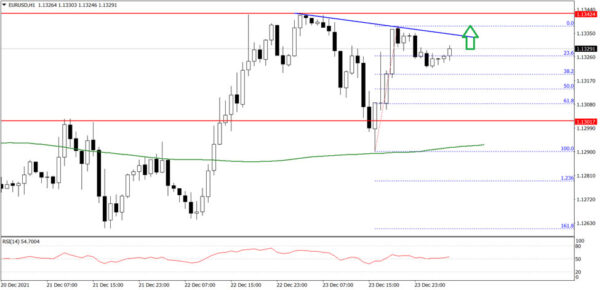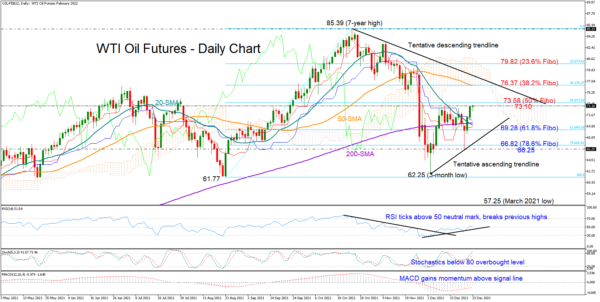Forex Trading For Beginners , why not everyone will be successful
Forex trading, or foreign exchange trading, is the act of buying and selling currencies in the foreign exchange market with the aim of making a profit. While it is accessible to beginners, not everyone who tries their hand at forex trading will be successful. There are several reasons for this:
1. Lack of Education and Knowledge: Forex trading is a complex and dynamic market. Many beginners jump into trading without taking the time to educate themselves about how the forex market works, including factors that influence currency movements, technical and fundamental analysis, and risk management. This lack of knowledge can lead to costly mistakes.
2. Insufficient Preparation: Successful forex trading requires careful preparation and planning. Beginners often underestimate the importance of having a well-defined trading strategy, setting realistic goals, and developing a risk management plan. Without these preparations, traders are more likely to make impulsive decisions and suffer losses.
3. Emotional Trading: Emotional reactions, such as fear and greed, can significantly impact trading decisions. Many beginners let their emotions drive their trading, leading to impulsive actions and poor judgment. Emotional trading often results in losses because traders may panic and make irrational decisions during market fluctuations.
4. Lack of Discipline: Discipline is crucial in forex trading. Successful traders stick to their trading plans, risk management strategies, and trading rules. Beginners who lack discipline may deviate from their plans, leading to inconsistent results and potential losses.
5. Overleveraging: Some beginners are attracted to the idea of using high leverage to magnify potential profits. However, excessive leverage can also lead to significant losses. Overleveraging can wipe out a trader's account quickly, especially if the market moves against them.
6. Unrealistic Expectations: Many beginners enter the forex market with unrealistic expectations of quick and easy riches. The truth is that forex trading is not a get-rich-quick scheme, and consistent profits take time to achieve. Unrealistic expectations can lead to disappointment and impulsive trading decisions.
7. Market Volatility: Forex markets can be highly volatile, and unexpected news events can cause rapid price fluctuations. Beginners may not be prepared to handle this volatility and may get caught off guard.
8. Lack of Patience: Patience is a virtue in forex trading. Beginners may become impatient if they don't see immediate results, leading them to take unnecessary risks and make impulsive decisions.
9. Capital Constraints: Forex trading requires a sufficient amount of capital to withstand losses and implement effective risk management. Some beginners may not have enough capital to trade safely, which increases their risk of blowing their accounts.
10. Trading Scams and Misinformation: The forex market is also plagued by scams and misinformation, which can deceive beginners and lead them to make poor choices.
To increase your chances of success in forex trading as a beginner, it's essential to invest time in learning, develop a trading plan, practice with a demo account, start with a small amount of capital, and maintain discipline and emotional control. Additionally, be wary of anyone promising guaranteed profits or quick riches in the forex market, as such claims are often associated with scams.
Forex trading, or foreign exchange trading, involves buying and selling currencies on the foreign exchange market with the aim of making a profit. While it's true that anyone can start forex trading, not everyone becomes successful for several reasons:
1. **Lack of Knowledge and Education:**
Forex trading requires a solid understanding of financial markets, economic indicators, technical analysis, and trading strategies. Many beginners enter the market without proper education and end up making costly mistakes.
2. **Inadequate Preparation:**
Successful traders spend time educating themselves, creating a trading plan, and practicing on demo accounts before risking real money. Some beginners jump into trading without adequate preparation and experience, leading to significant losses.
3. **Lack of Discipline and Patience:**
Successful trading requires discipline to stick to a trading plan, patience to wait for the right opportunities, and the ability to control emotions like greed and fear. Many traders lack these qualities, making impulsive decisions that lead to losses.
4. **Poor Risk Management:**
Managing risk is crucial in forex trading. Beginners often risk too much of their capital on a single trade, leading to significant losses when the trade goes against them. Proper risk management helps in preserving capital and sustaining through losses.
5. **Overtrading:**
Some beginners have a tendency to overtrade, constantly entering and exiting positions without a clear strategy. Overtrading can lead to high transaction costs, increased exposure to risk, and emotional burnout.
6. **Inability to Adapt:**
Financial markets are dynamic and constantly changing. Traders need to adapt to new market conditions, economic events, and trends. Those who can't adapt or learn from their mistakes may struggle to succeed.
7. **Market Volatility:**
The forex market is highly volatile, and prices can change rapidly. Sudden and unexpected market movements can cause significant losses for traders, especially if they're not adequately prepared or have placed large, unmanaged trades.
8. **External Factors:**
Economic and geopolitical events, central bank decisions, and unexpected news can influence currency markets. Traders need to stay informed and be prepared to react appropriately to such events, which can be challenging for beginners.
9. **Psychological Challenges:**
Trading can be emotionally taxing, especially during losing streaks. Fear, greed, and impatience can cloud judgment and lead to poor decision-making.
10. **Insufficient Capital:**
Starting with too little capital can limit trading opportunities and increase the risk of losing the entire account. Having enough capital is essential for managing risk effectively.
Becoming a successful forex trader requires a combination of education, preparation, discipline, adaptability, and risk management. It's essential for beginners to invest time in learning and gaining experience, and to start trading with a cautious and informed approach.


